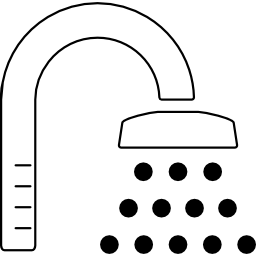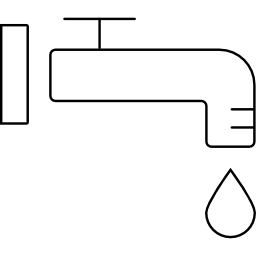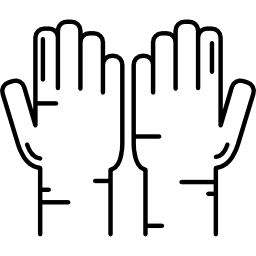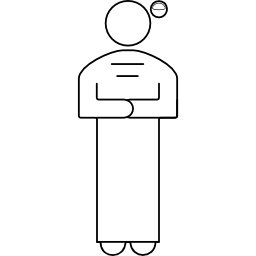What one should do after pronouncing the SHAHADATAAN
After pronouncing the Shahadataan, it is from the Sunnah that a person does the following: It is recommended that a person takes a complete bath (ghusl) with pure water and then perform a two-unit prayer. It is narrated that Thumamah al-Hanafi was taken captive and the Prophet (s) would keep coming to him and say: “What do you say, O Thumamah?” He would reply, “If you decide to kill me, you would be justified because I have killed; if you let me free, you would be letting free one who shows gratitude; and if you desire wealth, we will give you what you please.” The Companions of the Prophet (s) liked to ransom captives, and so they said, “What would we gain if we killed him?” So finally one day, the Prophet (s) decided to set [Thumamah] free, and he thereafter accepted Islam. The Prophet (s) sent him to the walled garden of Abu Talhah, commanding him to take a complete bath (ghusl). He performed a complete bath and prayed a two unit prayer, and the Prophet (s) said, “How to perform a Complete Bath (Ghusl). He performed a complete bath and prayed a two unit prayer, and the Prophet (s) said, “Your brother’s Islam is sincere.” (Saheeh ibn Khuzaimah #253)
-

Complete Bath (Ghusl)
-

How to perform Wudhu
-

Tayammum (Dry Ablution)
-

Perform Prayer (Salah)
How to perform a Complete Bath (Ghusl)
- The Intention (Niyyah). One must intend (in his heart) that he is performing ghusl to purify himself from a state of major impurity – whether janâbah, menstruation or postpartum bleeding – without uttering such intention verbally.
- Say ‘Bismillah’ (‘I begin with the name of Allah’).
- Wash the hands and then the private parts.
- Next, perform wudhu as you would for the prayer. You may delay washing of the feet until the end of the ghusl.
- You should pour [at least] three handfuls of water on your head, running the fingers through the hair so that water reaches the roots of his hair and scalp.
- Then pour water over the rest of the body, beginning with the right side. You should make sure to wash the armpits, ears, navel, and the creases of the skin if fat, for these creases prevent water from reaching the areas of skin concealed within. You should then wash the feet if not already done while making wudhu [before performing the ghusl]. ‘Aa`ishah reported: “When Allah's Messenger (s) would perform ghusl due to sexual intercourse, he would first wash his hands, then pour water with his right hand into his left, washing his private parts. After that he would perform wudhu as he would for the prayer, and then take water and rub it into the roots of his hair with his fingers. [Lastly] he would wash his feet.” (Muslim #316)
Ghusl becomes obligatory after one of the following things:
- Ejaculation of semen due to desire, nocturnal emission, or the like.
- Sexual intercourse, even if it does not result in ejaculation.
- Following menstruation,
- Following postpartum bleeding.
Wudhu
One should perform wudhu before the prayer, for the Prophet (s) said: "Prayer is not accepted without purification….” (Muslim #224)
Allah (y) says: O you who have believed, when you rise to [perform] prayer, wash your faces and your forearms to the elbows and wipe over your heads and wash your feet to the ankles... [5:6]
One should perform wudhu in the following manner: Humraan the freed slave of ‘Uthmaan bin Affaan (d) said: “I saw ‘Uthmaan (d) perform wudhu. He poured water on his hands thrice, then he rinsed his mouth and nose, washed his face thrice, washed his right hand up to his elbow thrice, washed his left hand up to his elbow thrice, wiped over his head once, washed his right foot thrice, and then his left foot thrice. He then said, ‘I saw the Messenger of Allah (s) perform wudhu like this, and he said: ‘Whoever performs wudhu like my wudhu, and then prays two Rakaat not thinking about anything else, Allah will forgive him all his previous sins.’ (Bukhari #1832)
- One should intend that he is performing wudhu to purify himself from a minor state of impurity. The proof that intention (niyyah) is obligatory as seen from the statement of the Prophet (s): “All deeds are considered by their intentions, and each person will be rewarded according to what he intends…” (Bukhari #1 & Muslim #45)
- One should say, “Bismillaah,” before making wudhu. The Prophet (s) said: “There is no Prayer for one who does not perform wudhu, and there is no wudhu for one who does not mention the name of Allah.” (Abu Dawood #101 & ibn Maajah # 399)
- One should wash his hands thrice at the beginning of the wudhu.
- One should rinse his mouth and clean his nose by sniffing water into it thrice. He should blow the water out of his nose using the left hand.
- One should wash his face thrice. The face consists of the area starting from the hairline at the top of the forehead to the bottom of the chin or beard, vertically, and from right ear to the left, horizontally.
- One should wash his hands from the tips of fingers to the elbow (including the elbow itself) beginning first with the right hand, then the left. If he is wearing a ring or a watch, he must remove it in order to allow the water to reach the skin underneath it.
- One must wipe over his head once. This is done by wetting the hands and passing them over the head, beginning from the front, proceeding to the back, and then passing them back over the head to the front. Abdullah b. Zaid (d) narrated: “Allah’s Messenger (s) passed his hands over his head starting from the front, proceeding to the back. He started from his forehead and passed them over to the top of his neck, and then passed them back to the place where he started from.” (Bukhari #183 & Muslim#235)
- One should wipe his ears by inserting wet index fingers in the cavity of the ears, and wipe the back part of the ears with the thumbs. Ibn Abbas described the wudhu of the Prophet (s) saying:“He then wiped over his head and put his index fingers into his ears. He wiped the backside of his ears with his thumbs, and the insides of his ear with his index fingers.” (Abu Dawud #123)
- One should wash his feet three times from the tips of the toes up to and including the ankles. Abu Hurairah (d) said that the Messenger of Allah (s) saw a person who did not wash his heels, and he said to him: “Woe to the heels from the Hellfire!” (Bukhari#60 & Muslim #142)
- One should wash the parts of wudhu in the correct sequence. He should not contradict the sequence mentioned in the verse, for Allah mentioned the obligatory acts of wudhu in a specific sequence.
- One should not delay washing one part of the body so that the previously washed part becomes dry.
It is mentioned in a Hadeeth that the Prophet (s) saw a man praying, but a portion of his foot – the size of a coin – was not wet. Upon this, the Prophet (s) ordered him to repeat his wudhu and prayer.” (Abu Dâwud #175)
One must remove anything from the parts that must be washed in the wudhu which might prevent water from reaching the skin underneath it, such as nail-polish, and similar things.
One remains in a state of wudhu unless something invalidates it, such as urination, defecation, passing of gas, pre-seminal fluid, prostatic fluid, false menstruation (vaginal bleeding other than menses) eating camel meat, touching the private parts with one’s hand directly, and deep sleep.
Tayammum (Dry Ablution)
If there is no water available to perform wudhu or ghusl, or there is a factor present which prevents the use of water, such as illness, or the inability to use water, it is lawful to perform Tayammum.
Tayammum takes the place of water in purifying oneself from states of impurity, and it is performed as follows:
- One should strike the ground once with his hands while his fingers are spread apart,
- One should then wipe over his face once with his palms,
- One should wipe both hands until his wrists. Your brother’s Islam is sincere.”
The Prayer
It is obligatory upon you to establish the prayer (Salaah) for it is the backbone of the religion; without it, one’s Islam would not be complete. The Prophet (s) said [striking an example between the religion and a camel]:
“The first matter that the slave will be brought to account for on the Day of Judgment is the prayer. If it is sound, then the rest of his deeds will be sound. And if it is deficient, then the rest of his deeds will be deficient.” (Tabarani, Saheeh al-Jaam’i)The salaah is a term which denotes a group of words and actions which start with takbeer (saying ‘Allahu Akbar’, meaning: ‘Allah is the greatest’) and ending with tasleem (saying ‘As-Salaamu ‘alaykum wa Rahmatullaah).
The Reward of Salaah
When one establishes the Salaah, he benefits in the following ways:
- Spiritual joy: The Salaah establishes a relationship between the slave and Allah. He enters a private conversation with Him, supplicating Him in sincere humbleness.
- Peace of heart and tranquility. The Prophet (s) said: “Women and perfume have been made beloved to me, and the Salaah has been made the delight of my eyes.” (Nasa'ie #3940)
- The Salaah prevents one from all sinful and immoral deeds. Allah (y) says: Indeed, prayer prohibits immorality and wrongdoing, and the remembrance of Allah is greater. And Allah knows that which you do. [29:45]
- The Salaah strengthens the bonds of love and unity among the Muslims. It breaks down all social differences that may exist between them; they all stand together side by side in rows, the old and young, the rich and poor, the noble and ignoble. All people are the same, humbling themselves before Allah, facing the same direction (the Qiblah) performing the same actions, reciting the same recitation, all at the same time.
Prayer Times
There are five prayers during the day and night which are obligatory upon every Muslim. All men should establish Salaah in congregation (jamaa‘ah) in the Masjid, unless they have a valid excuse; while women earn a greater reward when they pray in their homes; though they are allowed to pray in the masjid as well.
The Messenger of Allah (y) was asked about the times of prayers. He said: “The time for the morning prayer (lasts) as long as the first visible part of the rising sun does not appear and the time of the noon prayer is when the sun declines from the zenith and there is not a time for the afternoon prayer and the time for the afternoon prayer is so long as the sun does not become pale and its first visible part does not set, and the time for the evening prayer is that when the sun disappears and (it lasts) till the twilight is no more and the time for the night prayer is up to the midnight.” (Muslim #612)
-

FAJR
-

DHUHR
-

ASR
-

MAGHRIB
-

ISHA
Prayer Chart
| Name & Type of Recitation | Of Rak‘ahs | Its Time | Of Sunnah Prayers |
|---|---|---|---|
| Dhuhr (Noon) Silent | 4 | It starts from the time the sun starts to descend towards the west after its zenith, and ends when the length of an object’s shadow is equal to the actual object’s height. | 4 rak‘ahs before and 2 rak‘ahs after. |
| ‘Asr (Afternoon) Silent | 4 | It starts when the time of Dhuhr ends, and ends when the sun sets. | None |
| Maghrib (Dusk) Audible | 3 | It starts when the Sun has totally set, and ends when the red color of dusk disappears. | 2 rak‘ahs after |
| ‘Ishaa´ (Night) Audible | 4 | It starts when the time of Maghrib ends, and ends at the first appearance of light before dawn. | 2 rak‘ahs after |
| Fajr (Dawn) Audible | 2 | It starts at the first appearance of light at dawn, and ends when the sun starts to rise. | 2 rak‘ahs before |
The Pre-Requisites of Salaah
Know that the Salaah has certain prerequisites; if one leaves them, his prayer is invalid. They are as follows:
- Praying them in their proper times.
- One must purify himself from minor and major impurities. Allah, the Exalted, says: O you who have believed, when you rise to [perform] prayer, wash your faces and your forearms to the elbows and wipe over your heads and wash your feet to the ankles. And if you are in a state of janabah, then purify yourselves. [5:6]
- One’s body must be clean from any impurities. The Prophet (s) said: “Be careful to keep yourself clean from urine, for indeed, the majority of the punishment of the grave is due to people not doing so.” (Haakim #654 and verified) One must keep his clothes pure from any impurities. Allah (y) says: And your clothing purify. [74:4] One must make sure that the place he is praying in is free from impurities. A Bedouin once urinated in the Masjid, and the people stood up to confront him, but the Prophet (s) said: “Leave him and pour a bucket of water where he urinated, for you have been sent to make things easy, not to make things hard.” (Bukhari #217)
- Covering one’s ‘awrah. For a man, it is the area between the navel and the knees, but in salaah, it includes both his shoulders. As for a woman, it is her whole body, but in salaah, she does not need to cover her face and hands. Allah (y) says: O Children of Adam! take your adornment at every masjid... [7:31]
- One must face the Qiblah. Allah (y) says: So turn your face to the direction of al-Masjid al-Haraam. And wherever you [believers] are, turn your faces toward it [in prayer]. [2:144]
A woman in her menstrual period, or postpartum bleeding should not pray until her bleeding stops. Thereupon, she should perform a complete bath (ghusl) and resume praying, and perform ablution (wudhu) for each prayer if she invalidates it. She should not make up any prayers she missed while bleeding.
How to Perform Salaah
- One should make wudhu by using pure water, as Allah (y) orders: O you who have believed, when you rise to [perform] prayer, wash your faces and your forearms to the elbows and wipe over your heads and wash your feet to the ankles. And if you are in a state of janabah, then purify yourselves. [5:6]
- One must face the Qiblah, which is the direction of the Ka’bah, with his whole body and intend (with his heart) the specific prayer he is performing, without speaking it verbally.
- One must pronounce Takbeerat-ul-Ihraam by saying ‘Allahu Akbar’. He should do so while looking at the place he will prostrate in, raising his hands to the level of his shoulders or his earlobes, extending his fingers [with his palms] facing the Qiblah.
- One should put his hands on his chest, placing his right hand over his left, and can recite the opening supplication (Du‘aa-ul-Istiftaah), but this is supplication is not mandatory: “Subhaanak-Allahumma wa bi hamdika, wa tabaarak-Asmuka, wa ta‘aala jaddukka wa laa ilaaha ghayruka.” Meaning: Far removed are You from every imperfection, O Allah, and all praise belongs to You. Blessed is Your Name. Great and Exalted is Your Kingdom. None has the right to be worshipped except You.” One should then say: “A‘oodhu billaahi min ash-Shaytaan ir-Rajeem. Bismillaah ir-Rahmaan ir-Raheem.” Meaning: I seek refuge with Allah from Satan, the Rejected One. I begin with the Name of Allah, the Most Merciful, and the Bestower of Mercy. Then one should recite Surah al-Faatihah, saying ‘Ameen’ after finishing it; saying it aloud in the prayers in which he reads aloud and silently in the silent prayers. After this, one should recite whatever he wishes from the Qur'an.
- After completing recitation, one should bow (rukoo’) by bending the back forward. First he should say: “Allahu Akbar.” Meaning: Allah is Greater. He should raise his hands to his shoulders or earlobes while doing so. Then he should make rukoo’ (bowing posture) extending his back, making his head level with it. At this point he should place his hands with his fingers spread on his knees, keeping the elbows away from his sides. In the rukoo’, one should say three times: “Subhaana Rub-biyal-Adheem.” Meaning: Far removed is my Lord, the Most Magnificent, from every imperfection.
- One should raise his head [and upper body] from the rukoo, and raise his hands to his shoulders or earlobes, saying: “Sami‘allahu liman Hamidah.” Meaning: Allah answers the supplication of those who praise and extol Him. One should say this whether he is praying alone or leading others in Prayer. After fully returning to a standing position, one should say: “Rabanaa wa lak-al-Hamd.” Meaning: Our Lord, and to You belongs all praise.
- Next, one must prostrate (Sujood) and say: “Allahu Akbar.” Meaning: Allah is Greater. He should not raise his hands to his shoulders or ears in this case. He should descend, placing his knees on the ground before his hands – if it is not hard for him – and prostrate on seven parts: his face (forehead and nose), his hands, his knees, and the feet. The fingers and toes should face the Qiblah, and his fingers should be drawn together (not spread apart). He should keep his elbows away from his sides and his knees away from his stomach and his thighs away from his legs. He should lift his elbows and forearms off the ground and say (three times): “Subhaana Rub-biyal-A’laa.” Meaning: Far removed is my Lord, the Most High, from every imperfection. One should supplicate as much as possible in the sujood, for the Prophet (s) said: “As for the rukoo’, aggrandize the Lord (y) and as for the sujood, make as much supplication as you can, for [it is the place where] it is most likely to be accepted.” (Muslim #479)
- One should raise his head from the sujood and say,“Allahu Akbar.” One should not raise his hands to his shoulders or earlobes while saying so. He should lay his left foot flat on the ground [pointing to the right] and sit upon it, and prop his right foot upright [with the bottom of his toes on the ground facing the Qiblah]. One should place his hands on his thighs and knees, and then say thrice: “Rabbighfir li.” Meaning: My Lord, forgive me. In addition to this, he may say: “Allahumm-aghfir li, warhamni, wahdini, warzuqni, wa ‘aafini, wajburni.” Meaning: O Allah, forgive me, have mercy upon me, guide me, grant me sustenance, keep me in a state of safety and well-being, and strengthen my weakness.
- One has to perform a second sujood saying, “Allahu Akbar,” without raising his hands. He should do as he did in the first sujood.
- Then one raises his head from sujood saying, “Allahu Akbar,” without raising his hands to his shoulders or earlobes and stand up and perform the second Rak'ah, supporting himself with his knees, if possible. If this is difficult, then he may stand up while supporting himself with his hands. After standing, he should recite Surah al-Faatihah again and whatever he wishes to recite from the Qur'an, just as he did in the first rak‘ah.
- If one is performing a prayer which consists of two Rak'aat, such as Fajr, Jumu‘ah, or ‘Eid, after the second prostration he should sit with his right foot propped up, sitting on his left foot laid flat [pointing to the right]. He should clench his right hand and place it on the lower part of his right thigh, and he should point with his finger during his supplication and mentioning Allah (the tashahhud) symbolizing His Tawheed. He should place his left hand on the bottom, front part of his left thigh and recite the tashahhud: “At-Tahiyyaatu lillaahi, was-Salawaatu, wat-Tayyibaatu, as-Salaamu ‘alayka ‘ayyuhan-Nabiyyu, wa rahmatullaahi wa barakaatuh. As-Salaamu ‘alaynaa wa ‘alaa ‘ibaad-illaah-es-Saaliheen. Ash-hadu anna laa ilaaha ill-Allaah, wa ashhadu anna Muhammadan ‘abduhu wa rasooluh.” Meaning: All Words of Praise and glorification are for Allah alone, and all Prayers and acts of worship, and pure words and attributes. Peace be upon you, O Prophet, and the mercy of Allah and His blessings. May Allah send peace and security upon us, and upon all of Allah’s righteous slaves. I bear witness that none has the right to be worshipped except Allah, and I bear witness that Muhammad is His Slave and Messenger. He should then send peace and blessings upon the Prophet Muhammad in the following manner: “Allaahumma salli ‘ala Muhammad wa ‘ala aali Muhammad kama salayta ‘ala Ibraaheem wa ‘ala aali Ibraaheem, innaka hameedun majeed. Allaahumma baarik ‘ala Muhammad wa ‘ala aali Muhammad kama baarakta ‘ala Ibraaheem wa ‘ala aali Ibraaheem, innaka hameedun majeed” Meaning: O Allah, exalt the mention of Muhammad and the family of Muhammad, as You have exalted the mention of Ibraaheem and the family of Ibraaheem; You are indeed Worthy of Praise, Full of Glory. O Allah, send blessings upon Muhammad and upon the family of Muhammad as You have sent blessings upon Ibraaheem and upon the family of Ibraaheem; You are indeed Worthy of Praise, Full of Glory.” He should then seek refuge from four things: “Allaahumma innee a‘oodhu bika min ‘adhaabi jahannam, wa min ‘adhaab-il-qabr, wa min fitnat il-mahyaa wal-mamaat, wa min fitnat il-maseeh id-Dajjaal.” Meaning: O Allah! I seek refuge with You from the punishment of Hellfire, from the Torment of the Grave, from the Trials of Living and Dying, and from the Trials of the Anti-Christ (Dajjaal). One should ask Allah whatever he wishes, and desires from the good things of this life and next.
- Lastly, one should make the ‘Tasleem’ to the right, by turning his head to the right saying: “As-Salaamu ‘alaykum wa Rahmatullaah.” Meaning: May the Peace and Mercy of Allah be upon you. Then he should make tasleem to his left, by turning his head to the left, saying “As-Salaamu ‘alaykum wa Rahmatullaah.”
- If one is performing a three rak‘ah Prayer, such as Maghrib, or a four rak‘ah prayer, such as Dhuhr, ‘Asr or ‘Ishaa, after saying “Ash-hadu an laa ilaaha ill-Allah wa ash-hadu anna Muhammadan ‘Abduhu wa Rasooluhu,” in the Tashahhud mentioned previously, he should stand up and pray the third rak‘ah for a three rak'aat Prayer, or the third and fourth rak‘ahs for a four rak‘aat Prayer. He should stand, while supporting himself with his knees if he is able, and raise his hands to the level of his shoulders [or earlobes] saying, “Allahu Akbar.” He should recite Surah al-Faatihah. He should do the same as he did in the previous rak‘aat. He should then sit for the last Tashahhud, completing it fully by sending peace and blessings upon the Prophet, and after its recitation, he should conclude his prayer by making the Tasleem.
Voluntary Prayers
There are certain prayers known as as-Sunan-ur-Rawaatib, by which one would get extra reward and raise his level in Jannah. Through them, one makes up for any of his faults in the obligatory prayers, which have been mentioned in the table. The Witr prayer is also a sunnah prayer, and it consists of at least one rak‘ah. It should be the last prayer one performs at night.
Forbidden Times of Prayer
Voluntary prayers, other than those mentioned, may be performed at any time other than those specifically forbidden by Allah and His Messenger (s). These forbidden times are as follows:
- After the Fajr Prayer until the sun rises a spear’s length.
- The time just before and after the sun reaches its zenith until it descends a few degrees.
- After the ‘Asr prayer until the sun sets.
